
Israel’s health care system prepares for third Covid vaccine dose pending final government decision

Israel’s health care system prepares for third Covid-19 vaccine dose pending final government decision
From CNN’s Amir Tal
Israel’s healthcare system has been told to make arrangements to begin vaccinating people over 60 with a third dose of the Covid-19 vaccine from Sunday, according to a source with knowledge of Israeli health care planning, pending a final government decision to go ahead with the move.
Recipients of a third dose will need to show that more than five months have passed since they received their second dose, the source said.
FDA says Emergent BioSolutions plant can resume manufacturing J&J’s Covid-19 vaccine
From CNN’s Jen Christensen and Nadia Kounang
Emergent BioSolutions announced Thursday that the US Food and Drug Administration will allow it to resume the manufacturing of the drug substance that goes into Johnson & Johnson’s Covid-19 vaccine.
According to an administration official, the Baltimore plant has not been fully authorized yet, and while production can resume, the FDA will still need to inspect the individual lots of vaccine before they go out for shipment and can be administered.
The plant had been contracted by Johnson & Johnson and AstraZeneca, but production was stopped after a mix-up earlier this year that involved ingredients for Johnson & Johnson’s vaccine and AstraZeneca’s vaccine resulted in 15 million vaccine doses being spoiled by contamination.The government then asked J&J to take over production at the plant. The plant also stopped making the AstraZeneca vaccine substance.
After the plant’s production was stopped, the FDA returned to conduct several additional inspections at the facility, Emergent said. The company said it also has worked closely with the FDA and J&J to address quality concerns, and has developed an action plan going forward.
“The American people should have high expectations of the partners its government chooses to help prepare them for disaster, and we have even higher expectations of ourselves,” Emergent CEO Robert Kramer said in a statement. “We have fallen short of those lofty ambitions over the past few months but resumption of manufacturing is a key milestone and we are grateful for the opportunity to help bring this global pandemic to an end. We’d like to thank our government partners as well as Johnson & Johnson for their support.”
In an email to CNN, J&J confirmed the restart of production.
“We will continue to work toward securing Emergency Use Authorization in the United States for drug substance manufactured at Emergent Bayview as quickly as possible,” a spokesperson from Johnson & Johnson said in the email.
The FDA has been giving extra scrutiny to batches produced at the facility, which are shipped to other facilities to be put into vials and finished.
On July 13, the FDA authorized the fifth batch of J&J vaccine to be shipped but did not note how many doses that equaled.
A growing number of US companies are requiring vaccines. These are some of them.
Analysis from CNN’s Christine Romans

Get the shot or take a hike.
After months of reluctance, Corporate America is taking a stand on keeping its returning workers safe. A growing number of companies are requiring vaccines for employees and in some cases, for clients and customers.
Most companies are allowing for very rare religious and health exemptions, of course. But the “I read something scary on Facebook” excuse doesn’t apply anymore.
Silicon Valley is leading the way. Facebook and Google announced all employees returning to the office must be vaccinated.
Netflix is the first studio to mandate the vaccine. All actors who star in the streaming giant’s programming and the employees who come in contact with them must have the shot.
Wall Street offices are filling up fast. And vaccines are required. The financial sector says get vaxxed or find a new job. BlackRock and Morgan Stanley announced all employees must be vaccinated to return to the office.
It’s a diverse list. Saks Fifth Avenue, the Washington Post, Ascension Health, and Lyft are also requiring the shot to work.
It’s good business. Johnny Taylor, Jr, of the Society of Human Resource Management, says most employees want vaccine mandates. They want to know their workplace is safe when people return. His polling shows nearly 70% of employees want their colleagues to be vaccinated. And patience has worn thin with the vaccine-hesitant.
“You must be vaccinated if you want to come to work,” he tells me. “There are some organizations that are trying one more step before that. They’re saying, if you choose not to be vaccinated, then you will have to be tested several times during the week on your own dime. And you will have to wear a mask in the workplace and not any mask, but that N95 surgical mask. I mean, we are going to, at the end of the day, make this a little uncomfortable for you because you’re making it uncomfortable and the workplace less comfortable for your colleagues.”
That’s the case for MGM Grand. Unvaccinated workers must regularly test for the virus, and if found positive, they will quarantine — without pay.
MGM Grand’s CEO Bill Hornbuckle hasn’t mandated the vaccine but has implored workers to get the shot, acknowledging the unvaccinated will hurt business.
“In addition to the heart-wrenching thought of more illness and death, I fear that progressively more restrictive measures, including a return to social distancing and capacity restrictions, could be around the corner if we continue on this path,” Hornbuckle wrote in a letter to employees.
That’s the view from Union Square Hospitality CEO Danny Meyer. He told CNBC Thursday you can’t have full restaurants again without mandates for employees and customers to be vaccinated.
He’s giving workers 45 days to get the shot.
Even the Federal Reserve chief, Jerome Powell, says vaccinations are key to protect the economy from coronavirus variants.
“These strains — there is no reason they can’t keep coming, and one more powerful than the next. We don’t know that, but that’s certainly a plausible outcome. As vaccinations rise we can nonetheless get back to our economic activity,” Powell said Wednesday.
The Delta variant of the virus has many companies tweaking their return to the office plans. Many had hoped to have employees back after Labor Day, now some are pushing back later into the fall. But they are signaling that vaccines will be required.
Plan accordingly.
More than 71% of the US population lives in a county where people should be wearing masks indoors
From CNN’s Michael Nedelman and Deidre McPhillips
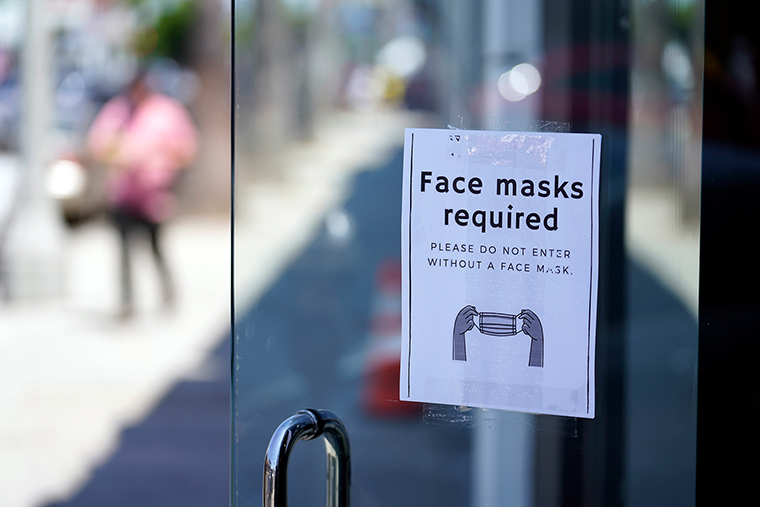
More than 71% of the US population — or nearly 237 million people — live in counties considered to have “high” or “substantial” Covid-19 transmission, according to a CNN analysis of data published Wednesday by the US Centers for Disease Control and Prevention.
Only 1% of the population — just 3.2 million people — live in areas with “low” transmission.
That means the latest mask CDC guidance, which advises even fully vaccinated people to mask up indoors in areas with “substantial” or “high transmission,” would apply to more than seven in 10 Americans.
About 48% are in “high” transmission counties, and 23% are in counties with “substantial” transmission.
This is up from a week ago, when just over half — 50.5% — of Americans lived in counties that fell into either category. Two weeks ago, that number was even lower: 38.5%.
In early June, 2.4% of the population lived in a county with “high” Covid-19 transmission, and another 13% in areas with “substantial” transmission.
Meanwhile, Covid-19 cases in the US continue to rise. The country is now averaging 63,698 new each day, according to Johns Hopkins University — that’s a 59% increase over last week’s seven-day average.
According to the CDC, the US is experiencing an uptick in vaccinations. An average of 382,106 people are initiating vaccination each day, the agency’s data shows. This is the highest it’s been in three weeks and a 35% increase over last week. At least 49.2% of the total US population is fully vaccinated.
Some more context on the data: The CDC considers a county to have “high” transmission if there have been 100 or more cases of Covid-19 per 100,000 residents in the past week, or a test positivity rate of 10% or higher during the same time frame. For “low” transmission, those numbers must be fewer than 10 new cases per 100,000 or a test positivity rate under 5%.
Ahead of today’s speech, Biden feels like US has hit a “brick wall” on vaccinations
From CNN’s Kaitlan Collins and Kevin Liptak
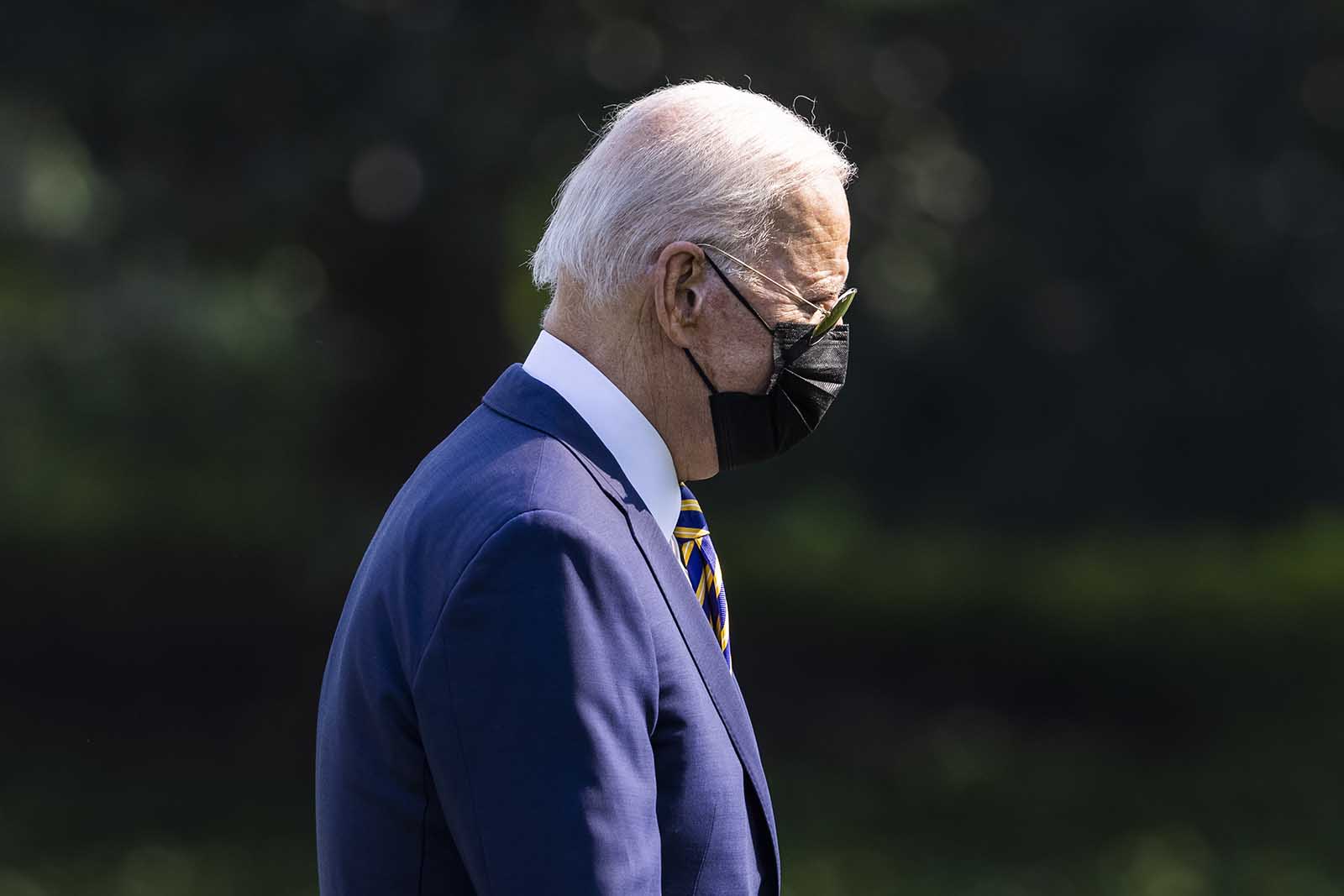
As vaccination rates have fallen across the US, President Biden has become increasingly frustrated and feels as if the nation has hit “a brick wall” when it comes to getting shots in arms, according to people familiar with his thinking.
Biden will give a speech Thursday announcing a new vaccine requirement for civilian federal employees, but one official says he also plans to directly address the millions who have procrastinated or outright refused to get vaccinated.
In private meetings with top aides, Biden has raised one question repeatedly: “What’s the problem?”
The President gets daily updates on vaccination rates, hospitalizations and deaths. Lately his briefings have focused on the formidable Delta variant, but advisers have also warned that if the vaccination issue doesn’t change soon, another — and potentially worse — variant could surface, further derailing progress the US has made.
One of the principal motivators behind Biden’s vaccine requirement for federal workers is providing a model for private companies and local governments considering similar rules for their own employees, according to administration officials.
While Biden hopes the steps he announces Thursday will lead to more federal workers getting shots, he views the broader goal of providing an example — and political and legal cover — to other employers as equally important.
The White House was still finalizing the parameters of the requirement on Wednesday, but specific implementation is expected to be left to individual agencies and departments. Biden’s announcement itself is likely to be quite broad, with the details left to those agencies to sort out. It’s possible different agencies have different requirements.
Officials wanted to announce the requirement before agencies and private businesses return their workforces to offices in the fall to give them time to implement the changes and to allow workers time to get fully vaccinated.
Administration officials were quietly pleased by how little pushback there was to the announcement by the Department of Veterans Affairs that they would require all healthcare workers to get vaccinated within the next eight weeks.
The FDA says it’s working as fast as possible to fully approve vaccines. Here’s where the process stands.
From CNN’s Kristen Holmes, Jen Christensen, Jeff Zeleny and Tara Subramaniam
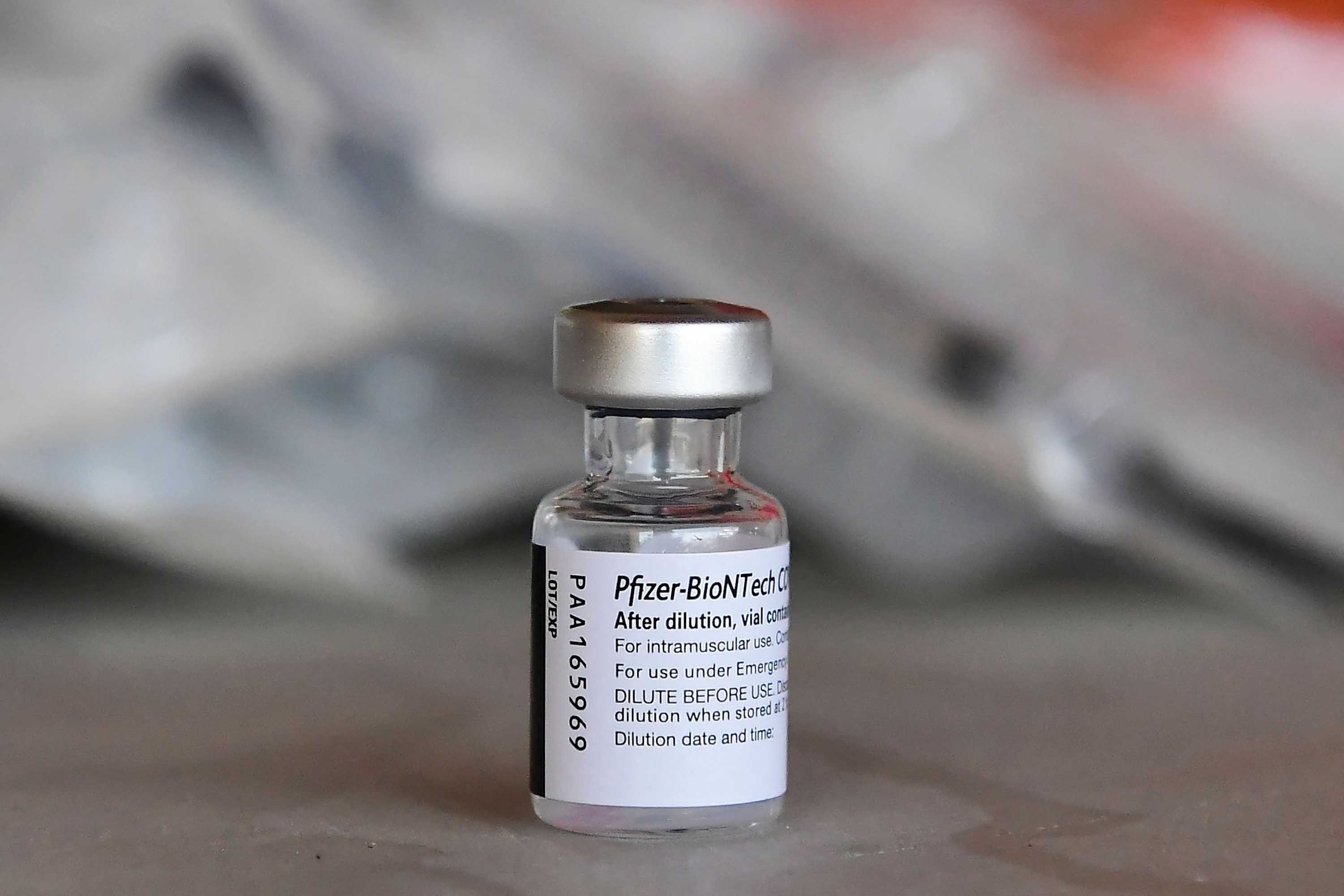
The US Food and Drug Administration insists it is working as quickly as possible to review applications for full approval of the Covid-19 vaccines as the number of cases continues to rise and vaccination rates decline across the country.
Though the FDA has yet to disclose a time line for when its work will be done, medical experts and sources familiar with the process tell CNN that full approval could come within the next couple of months. While that would amount to a record fast pace, the urgency is rising for a fully approved vaccine given the troubling surge in Covid cases sweeping the country.
An FDA official told CNN on Wednesday that the agency continues to work as fast as possible to review the applications. The official noted that as part of the emergency use authorization granted last year, the vaccines have already undergone a “thorough scientific evaluation” in order to “meet FDA’s rigorous standards for safety, effectiveness, and manufacturing quality.”
Still, federal medical officials and business leaders agree that full FDA approval would be helpful in the fight against vaccine hesitancy and would support companies eager to issue vaccine mandates to employees returning to the office.
Where the process stands: The FDA should have all the paperwork and data from the vaccine trials from Pfizer and be in the reviewing process, medical experts said.
In July, Pfizer announced that the FDA had granted its vaccine a priority review, accelerating the process from 10 months to six, meaning that technically approval should be granted by January.
But the acting commissioner of the FDA, Dr. Janet Woodcock, has said the FDA intends to complete the review far in advance of its January deadline. Multiple officials told CNN the FDA is working nonstop to get through the review process and grant approval.
Former FDA Commissioner Dr. Scott Gottlieb said on Wednesday that he believed the approval could come as early as next month.
“I long felt that the FDA would approve the vaccine probably within a three- to four-month time frame from when the application was submitted. Those applications were submitted about two and a half, three months ago. … So I think that puts you on (an) end of August, September time frame in terms of when these are going to be approved.”
Medical experts stressed that the vaccination approval process takes time, even for something as vital as Covid-19 vaccines.
Read more here.
Beijing reports first Covid-19 case in nearly 6 months
From CNN’s Jessie Yeung
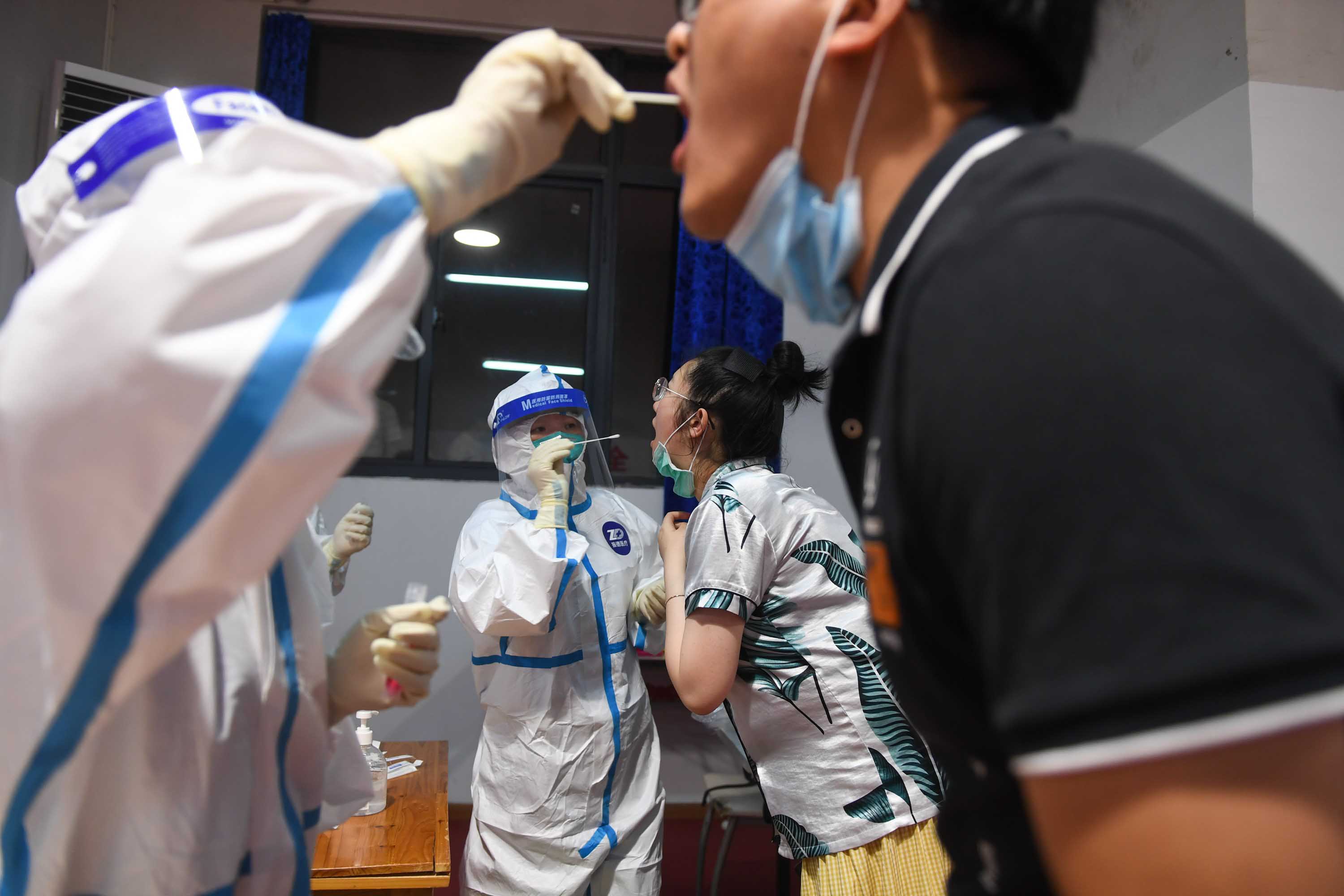
Beijing recorded its first Covid-19 case in nearly six months on Wednesday, as Chinese authorities scramble to prevent the spread of the Delta variant amid an outbreak linked to an airport in the populous eastern city of Nanjing.
The latest outbreak first emerged last week after more than a dozen cases were detected among cleaning staff at Nanjing Lukou International Airport. It prompted officials to launch mass testing for more than 9 million residents starting July 21; a second round of mass testing was completed over the weekend, and a third round began on Wednesday.
So far, at least 175 cases are connected to the airport cluster, which officials have linked to the more infectious Delta variant.
“The recent spike in infections in the city can be attributed to the special location of the outbreak and the highly contagious nature of the (Delta) strain,” said Ding Jie, vice director of Nanjing’s center for disease control and prevention, at a news conference, state media reported Tuesday.
Despite the rapid and aggressive testing campaign, the virus appears to have already spread beyond Jiangsu province.
China recorded 49 new cases on Wednesday, including 24 local infections from three additional provinces, according to the National Health Commission (NHC), taking the total number of cases associated with the new cluster to at least 175.
A second new case was reported in Beijing on Thursday afternoon, with health authorities describing the two local cases as a husband and wife who had recently traveled outside of the capital. Close contacts of the couple have been placed under quarantine.
Though the latest nationwide count marks a slight drop from the 86 cases recorded Tuesday – the highest single day increase since January – the virus’ spread across provincial borders is sparking alarm among the country’s leaders, after more than a year of low case numbers and resumed daily life.
Some background: The coronavirus was first detected in the central Chinese city of Wuhan in late 2019, rapidly spreading across China and the world. Yet despite being the first country to succumb to the virus, China has since managed to successfully contain its spread. Since March 2020, the official case figures have remained low, and occasional flare-ups have been quickly contained with mass testing and severe restrictions, including mass lockdowns of hundreds of millions of people across the country.
The current outbreak, however, poses a new threat, with the more transmissible Delta variant identified in the eastern city of Nanjing, capital of Jiangsu province and a major industrial and transport hub home to more than 9.3 million people.
It will also be a test of the efficacy of China’s massive vaccination program, which has administered more than 1.5 billion doses so far – a scale and speed unrivaled by any other country in the world.
Other countries in the region, including Thailand and Australia, have also been hit by the Delta variant and are currently battling outbreaks. But these countries have also struggled with a slow vaccination rollout beset by delays and shortages. This is in sharp contrast to China, which is on track to reach its goal of achieving so-called “herd immunity” – the point at which enough people have either been infected or vaccinated to end community transmission – by December this year.
Biden expected to announce vaccination requirement across federal government today
From CNN’s Phil Mattingly and Jason Hoffman
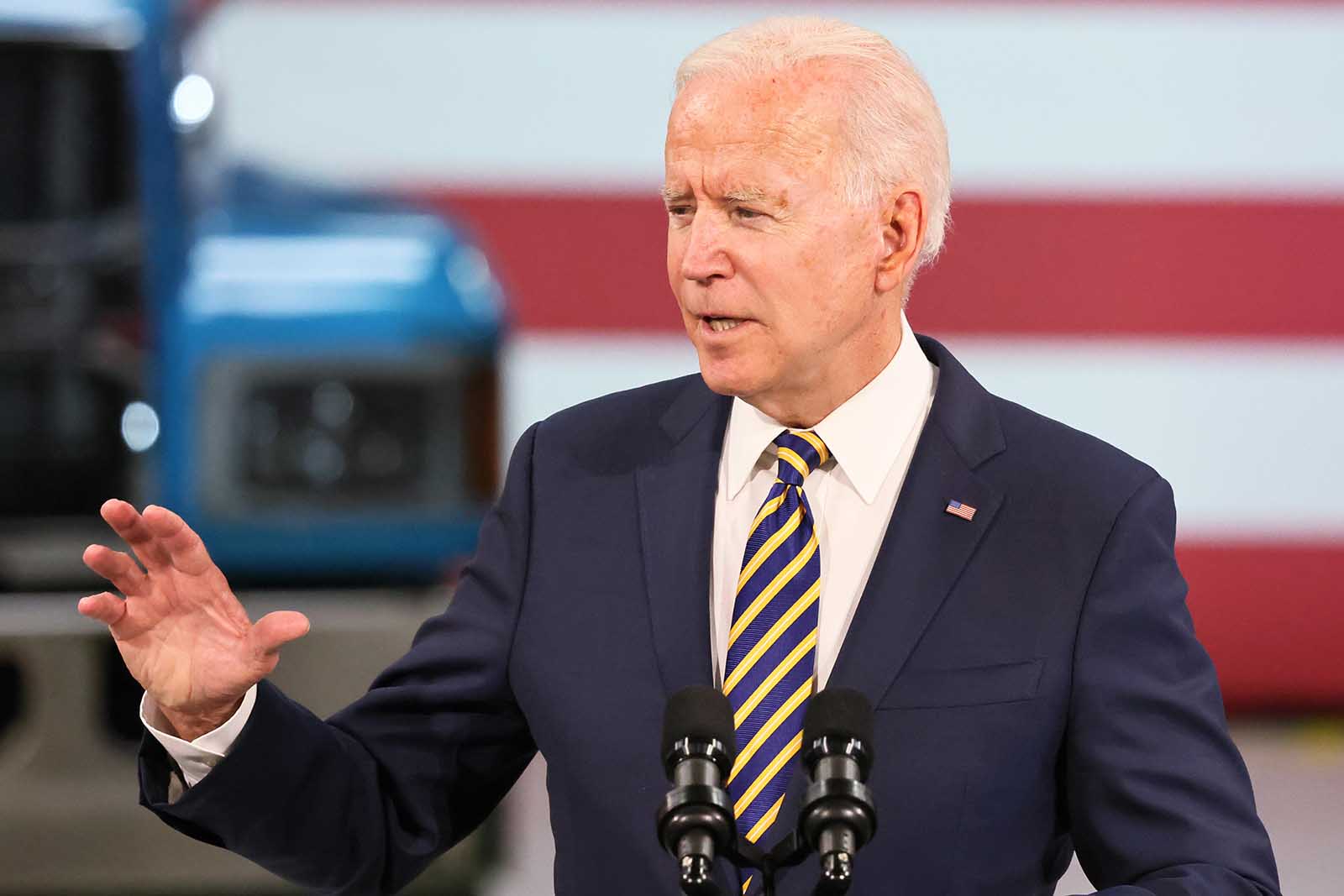
President Biden will announce on Thursday a requirement that all federal employees and contractors be vaccinated against Covid-19, or be required to submit to regular testing and mitigation requirements, according to a source with direct knowledge of the matter.
The announcement will come in remarks today at 4:00 p.m. ET. Biden is also expected to lay out a series of new steps, including incentives, in an attempt to spur new vaccinations as the Delta variant spreads rapidly throughout the country. It will also follow the decision by the Department of Veterans Affairs to require its frontline health care workers to be vaccinated over the course of the next two months.
Biden alluded to the looming announcement on Tuesday.
“That’s under consideration right now,” Biden said, when asked if he would impose a vaccination mandate on federal workers.
More on the announcement: While the specifics are still being finalized, the source said, federal workers would be required to attest to their vaccination status or submit to regular testing. The source said the proposal will be roughly similar to what is being implemented in New York City. Additional requirements for the unvaccinated could be added as agencies push to vaccinate their employees.
Biden will not impose the requirement on the US military, despite his authority to do so, for the time being. He is, however, likely to outline how the Department of Defense may seek to approach the issue going forward, the source said.
Read more here.
Source: http://rss.cnn.com/~r/rss/cnn_topstories/~3/RaVtVoVGscY/h_63afbc1c6a4602ba0554d1515e8c5c30
















